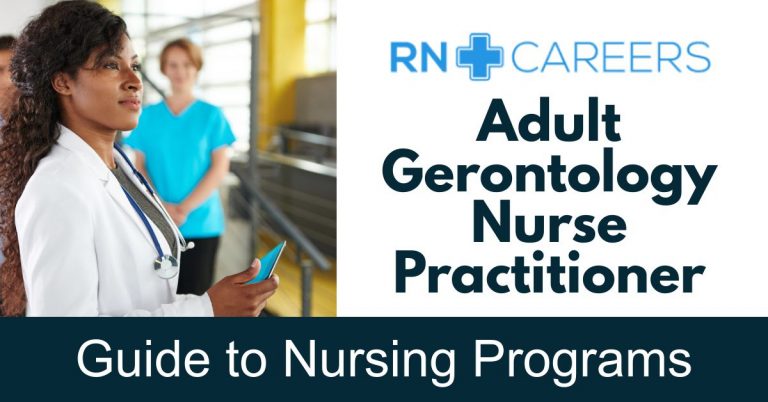Psychiatric Mental Health Nurse Practitioner Overview
- What You Will Do: Diagnose mental illnesses, prescribe psychiatric medication, provide counseling and psychotherapy, work with a larger healthcare team
- Where Will You Work: Private mental health clinics, university counseling services, community health clinics, inpatient and outpatient psychiatric units, correctional facilities
- Employment Projections: The Bureau of Labor Statistics anticipates a 31 percent growth for NP roles between 2016 and 2026. The Psychiatric Nurse Practitioner (PMHNP) profession is included in this estimate.
- How Much Will I Earn: PMHNPs have a competitive salary typically making between $90,000 and $117,000.
- Number of Programs: There are 123 PMHNP programs in the U.S.
- How Long Does It Take to Become an PMHNP: Depending on the program you choose becoming a PMHNP will take 2 to 3 years.
- Requirements to Become One: You will need a bachelor’s degree, a master’s in nursing, RN and NP licensure in your state, as well as national certification as an NP.
What are the Best Psychiatric Mental Health Nurse Practitioner Programs in Each State?
How Do I Become a Psychiatric Nurse Practitioner?
To become a PMHNP you will need a bachelor’s and master’s degree in nursing. Whether you are already an RN or not there are ways for you to become a PMHNP.

- BSN to MSN: If you are already an RN with a BSN you can do a master’s in nursing program in 2 years.
- Bachelors to MSN: If you are not a nurse but have a bachelor’s degree in any field you can do a Direct Entry Master’s in Nursing program. If you have a bachelors in something other than nursing you complete a Direct Entry Master’s in Nursing program. To enter one of these programs you will have to complete the pre-requisite nursing courses that will include various biology and chemistry courses as well as anatomy and physiology and more. A Direct Entry Master’s program will take around 2 to 3 years.
- BSN to DNP: A doctorate in nursing practice (DNP) will give you both an MSN and DNP degree after about 4 years. This degree will prepare you to use evidence based research to guide your clinical practice.
- MSN to DNP: Obtaining a DNP degree will take around 2 to 3 years if you already have a master’s in nursing.
Certification and Licensure: Certification is used to make sure that you meet the qualifications to care for your designated population. By passing the PMHNP exam through the ANCC you can become a certified PMHNP. You will need to renew your certification every 5 years by meeting the 1,000 clinical hour and 100 CE hours requirements. Once certified you can get licensed through your state’s board of nursing (BON). This means that you will be legally allowed practice as an PMHNP in your state. Your state’s board of nursing (BON) will grant you licensure after you complete the application process. This enables you to practice legally in your state. You will have to submit transcripts from your PMHNP program as well as a fee and proof of RN licensure and national certification.
Where Do PMHNPs Typically Work?
PMHNPs can work in outpatient and inpatient mental health settings. This can be a psychiatric hospital, a private practice, community health clinics, universities, or even prisons. There are many settings where you can choose to work which means that you can change your career focus if you wish to.
Psychiatric Mental Health Nurse Practitioner Salary Expectation
Your salary is dependent on the state and city where you practice as well as your experience and practice setting. In general, the median salary for all NPs is $104,610 according to the Bureau of Labor Statistics. The salary range for PMHNPs can vary from about $90,000 to $117,000 per year. Certain settings such as private practices will pay you more than community health settings, however there are other financial benefits to working with medically underserved populations. The Nurse Corps Loan Repayment Program is a great service that will help you pay off your loans if you work in medically underserved areas. You may also be eligible for the Public Service Loan Forgiveness and/or Perkins Loan Forgiveness. You can also expect your salary to increase as you gain experience.
Online PMHNP Programs
For many busy professionals pursuing an advanced degree can have many barriers. Online PMHNP programs make this profession more accessible to everyone. With an online PMHNP program you will be able to complete your coursework online in your own time and do clinical hours close to your home. You may only need to go to campus a couple times a year, if at all. These programs allow you to balance all the priorities in your life with a little less stress.
What is a Typical PMHNP Curriculum?
Psychiatric Nurse Practitioner Program Education & Program Details
Typical Curriculum & Courses
While institutions differ, PMHNP students can expect core courses in topics like:
Assessment
- Advanced Psychiatric Assessment, Diagnosis & Testing
- Psychopathology & Differential Diagnosis
Medication Management
- Advanced Psychopharmacology
- Neuroscience Foundations
Individual Therapies
- Individual Psychotherapy
- Cognitive & Behavioral Therapy
- Crisis Intervention & Suicide Prevention
Group Modalities
- Group Therapy & Family Therapy Models
Special Populations
- Child & Adolescent Psychiatric Care
- Gerontological Psychiatric Care
- Addiction & Substance Abuse Counseling
Professional Practice
- Ethics, Policy, Law in Psychiatric Care
- Psychiatric Care Management & Leadership
Hands-on clinical training is also integrated to develop patient assessment, psychotherapy, and pharmacological management capabilities essential to the PMHNP role.
Alongside coursework, students complete 500-700 supervised clinical hours across hospital psychiatric units, private/group practices, and community mental health settings working with individuals and groups.
Online vs On-Campus Programs
PMHNP programs are available through top nursing colleges in both online and on-campus formats. While online PMHNP degrees allow for more flexibility, on-campus options also have advantages.
Online PMHNP Programs
- Convenient for working nurses
- Learn around your schedule
- Combine recorded lectures and live virtual meetings
- Complete clinicals near approved sites
- Often more affordable
On-Campus Programs
- Immersive academics & faculty access
- Build local professional network
- Campus resources like simulation labs
- Experience university hospital rotations
When researching PMHNP programs, assess factors like cost, location, flexibility, faculty expertise, clinical rotation options and program concentrations offered to identify the right fit.
Both pathways allow graduates to take the necessary ANCC or AANP certification exam to become licensed PMHNPs. The key is choosing an accredited program that aligns with your situation.
Each university will have a little variety in their curriculum. In general, you can expect to take courses similar to what is offered at Vanderbilt University:
- Ethical Issues in Advanced Practice Nursing
- Neuroscience for Mental Health Practitioners
- Advanced Health Assessment
- Research Methods for Advanced Practice Nursing
- Advanced Pathophysiology
- Psychopharmacology
- Advanced Pharmacology
- Psychiatric Mental Health Theory
- Conceptual Basis for Advanced Practice Nursing
The Role of the PMHNP in the Mental Healthcare Provider Shortage
Like with all nursing specialties, there is a shortage of psychiatric specialists. This means that the job outlook for PMHNPs is good. Additionally, as the public gains more awareness of mental health needs in the country, the role of the PMHNP could continue to become more essential in filling the mental healthcare provider gap. With the implementation of the Affordable Care Act, more people have gained access to insurance. This has increased the need for all primary healthcare providers. PMHNPs offer a cost-effective solution to filling the gap in mental healthcare providers.
Number of PMHNP Programs in the United States
In the U.S. there are 123 PMHNP programs with 4 fully online programs at the University of Missouri Columbia, Missouri McNeese State University in Louisiana, Eastern Kentucky University, and University of South Alabama
Pathways to Becoming a PMHNP
RN to MSN/PMHNP
One of the most direct routes for becoming a Psychiatric-Mental Health Nurse Practitioner (PMHNP) is by first earning a Bachelor’s of Science in Nursing (BSN) and getting licensed as a Registered Nurse (RN), then completing a Master’s of Science in Nursing (MSN) degree with a PMHNP concentration.
Typically, nurses who already have patient care experience want to leverage their skills while advancing into an advanced nursing role. PMHNP programs enable RNs to build on existing medical and scientific knowledge with advanced coursework tailored to psychiatric care.
A BSN-to-MSN pathway generally takes 2-3 years to complete. Admissions requirements may include:
- Active RN license
- Bachelor’s degree in nursing
- Minimum GPA (e.g. 3.0)
- Letters of recommendation
- Personal statement
- Some programs may require healthcare experience
Coursework further develops critical thinking and diagnostic skills for evaluating, diagnosing, treating psychiatric and mental health conditions across the lifespan. Students also gain deeper expertise in areas like:
- Psychopharmacology
- Individual psychotherapy
- Crisis intervention
- Family therapy
- Group therapy modalities
- Neuroscience
- Behavioral health policies
Clinical hour requirements also prepare RN-to-MSN/PMHNP students to apply knowledge in practice through rotations across community health clinics, hospitals, private practices, and other mental health settings.
Non-Nursing Bachelor’s to MSN/PMHNP
For those without a nursing background, many PMHNP programs offer direct entry pathways starting from any Bachelor’s degree. These accelerated MSN options allow graduates to sit for the ANCC or AANP PMHNP certification exams.
Direct entry MSN/PMHNP programs take around 3 years to complete. They combine preparatory nursing coursework with graduate-level psychiatric mental health content.
Admissions requirements typically include:
- Bachelor’s degree (any field)
- Competitive GPA
- GRE/MAT scores
- CNA or EMT certification
- Letters of recommendation
- Interview
- Essay
Alongside nursing fundamentals, core MSN and PMHNP topics are covered such as:
- Advanced physiology and pathophysiology
- Healthcare policy and ethics
- Pharmacology principles
- Neuroscience
- Psychiatric assessment
- Mental health management
These direct entry programs intensely prepare non-nurse college graduates through a mix of academic and clinical experiences necessary for advanced psychiatric nursing practice.
Accelerated BSN to MSN/PMHNP
For non-nurses wanting to transition quicker into a PMHNP role, accelerated BSN programs offer a faster option which feeds directly into MSN coursework.
Although intensive, this pathway allows students to accomplish an undergraduate BSN degree and graduate MSN in approximately 5-6 years combined.
Typical prerequisites before applying include courses in anatomy, physiology, chemistry, microbiology, psychology, etc.
Then BSN portions build core medical, surgical, pediatric, obstetric and community health nursing skills:
- Fundamentals of Nursing Practice
- Health Assessment & Promotion
- Nursing Care Across Lifespan
- Evidence-Based Practice
- Nursing Leadership & Policy
After completing the accelerated 12-18 month BSN portion, students roll directly into a 2-3 year MSN PMHNP graduate track to hone specialized psychiatric care capabilities through advanced coursework and field experience. This shaves a year or more off the typical path.
Program Accreditation to Look For
Given the clinical licensing requirements in psychiatric nursing, it’s essential PMHNP programs hold proper accreditations. Here’s what to look for:
National Nursing Accreditations
- CCNE – Commission on Collegiate Nursing Education
- ACEN – Accreditation Commission for Education in Nursing
Regional Accreditation
- WASC – Western Association of Schools & Colleges
- SACS – Southern Association of Colleges & Schools
Checking for both national nursing and regional college accreditation helps ensure programs meet quality standards for education and clinical hour rigor required for licensing.
Comparing PMHNP Programs
Those considering PMHNP careers can differentiate programs by:
- Faculty & Research Prominence – Leading educators and researchers attract funding, options
- Specialty Focus Areas – Addiction, military families, psychotherapy certs
- Tuition & Affordability – Compare total costs with scholarships/aid options
- Acceptance Rates – More competitive programs have tighter admission requirements
- Clinical Sites & Preceptor Access – Range of care setting rotation options
- Location Factors – Urban access versus limited rural openings
- Career Prospects & Services – Alumni job placement and salary outcomes
Thoroughly exploring various NP program distinctions helps identify the optimal pathway for your vocational aspirations and situation.
Pursuing a DNP as a PMHNP
MSN vs DNP for Career Advancement
While an MSN suffices for clinical licensing as a Psychiatric Nurse Practitioner, those wanting to progress into leadership roles or teach at the university level may benefit from a Doctor of Nursing Practice (DNP) as the terminal degree.
MSN – 2-3 year graduate program focused on direct patient care capabilities
DNP – 3+ year doctorate builds advanced expertise in systems thinking, health policies, financing, executive decision-making, quality metrics, and nursing research excellence.
DNP-prepared PMHNPs qualify for a wider scope of career advancement options into managerial and administrative positions directing clinical programs, large psychiatric practices, behavioral health departments, or major hospital units.
A DNP can also open up adjunct teaching opportunities in nursing schools allowing students to shape the next generation of psychiatry nurse practitioners.
Difference in Programs & Courses
Though rooted in clinical excellence, DNP curriculums emphasize a bigger picture perspective. Core areas delved into include:
- Statistical Analysis
- Program Evaluation
- Healthcare Administration
- Quality Improvement Systems
- Health Technology Solutions
- Policymaking for Population Health
- Advanced Nursing Research
This expanded knowledge fuels evidence-based decisions improving psychiatric patient outcomes across broader care contexts.
The DNP capstone project also lets students address a systems-based issue through research inquiry to benefit mental health delivery models, demonstrating thought leadership.
Benefits of Earning a DNP
Here are motivations advanced practice RNs commonly cite for investing the extra time in a DNP:
- Opportunity to impact care models and service delivery at administrative levels beyond direct patient work
- Develop forward-thinking leadership abilities to guide healthcare system change
- Getting involved in policymaking to continue elevating psychiatric nursing
- Qualifications to direct clinical and educational programs at large scale
- Potential for higher compensation across career lifespan
From C-suite leadership to professor roles, the DNP opens avenues to coach future Psychiatric NPs while innovating best-practices benefiting psychiatric patients everywhere.
PMHNP Certification & Licensure
After graduating an accredited MSN or DNP program with PMHNP specialization, RNs must pass the national certification exam administered through either the ANCC or AANP to qualify for state licensure allowing completely independent practice.
Exam & Maintenance Requirements
ANCC & AANP Exams
- ~3 hour, 175 multiple choice question exam
- Offered year-round at test sites
- Results in 4-6 weeks
- Certification lasts 5 years
Renewal/Recertification
- Retake exam or…
- Apply contact hours: 1000 clinical + 100 CE over 5 years
- Submit renewal fee
Lifelong Learning
- Annual conferences like ANA, APNA
- Local hospital provided CE events
- Webinars, online courses related to Psychiatry
Committing to continual learning allows PMHNPs to deliver care aligned with evolving research and new therapeutic modalities.
State Licensing Application Process
With national certification verified, PMHNPs can apply for state APRN licensure through their Board of Nursing (BON).
Typical Documents Needed
- Backgroundcheck + fingerprints
- Transcripts
- RN license details
- NP certification proof
- Protocol forms
- Feesranging $75-$300
This grants prescribing authorityand legalpermissions to autonomously assess, diagnose, treat, and council patients under the scope of the PMHNP role in that state.
Complying with both certification and state licensing processes protects public safety by ensuring practice standards for licensed, professionally certified Psychiatric NPs.
PMHNP Job Environments & Settings
PMHNPs fill an essential and growing role in mental healthcare delivery. Practice environments depend partly on patient load needs and care models.
Common Facilities & Healthcare Systems
From private practices to major hospitals, PMHNPs work alongside psychiatrists and therapists providing assessment, medication, and counseling services.
- Outpatient Clinics
- Community Health Centers
- Group or Private Practices
- Hospital ER/Psych Wards
- University Counseling Centers
- Residential Facilities
- Correctional Institutions
Integrated facilities also rely on Psychiatric NPs to coordinate behavioral care aspects across internal medicine, primary care, pain management and related specialties.
Private Practice Considerations & Ownership
Many PMHNPs aspire to open their own private practice for the autonomy and income potential from owning the business. This path has advantages but also substantial risk and work involved.
Operational realties that owners must grapple with include:
- Managing payroll/benefits
- Optimizing appointment booking
- Minimizing no-shows via reminders
- Reducing wait times for patients
- Billing / reimbursement administration
- Covering taxes, rent & supplies from revenue
- Overseeing staffing changes
- Budgeting & financing growth
While independence appeals to some PMHNPs, others prefer to remain solely focused on patient care through existing healthcare systems versus the demands of building a clinic. Before starting a private practice, realistic planning is imperative.
Psychiatric Mental Health Nurse Practitioner Program Resources
- American Nurses Credentialing Center
- American Association of Nurse Practitioners
- American Psychiatric Nurses Association
- Bureau of Labor Statistics
Denisco, S. M., Barker, A. M., (2016). Advanced practice nursing: Essential knowledge for the profession. Burlington, MA: Jones and Barlett Learning.
- About the Author
- Latest Posts
Lauren is a Registered Nurse and Women’s Health Nurse Practitioner who works in an OB/GYN clinic in the Boston area. She completed a Direct Entry MSN program at Boston College in May 2017 after obtaining a BS in Forensic Science and a BS in Biology from the University of New Haven, so she has special awareness of how confusing the many paths to nursing can be! She is passionate about enhancing and clarifying the nursing role globally as well as combatting human trafficking from a public health standpoint. In her free time Lauren enjoys writing and traveling.






